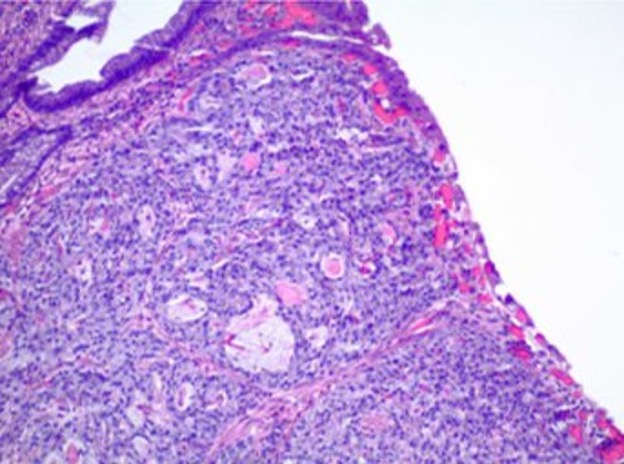Case Presentation: Patient is a 71-year-old female who presented to the emergency department due to outpatient labs showing a significant anemia. Her primary complaint was a worsening feeling of generalized weakness over the last four weeks. She denied blood in her stool or urine, or any history of bleeding or clotting disorders. She was found to have a hemoglobin of 5.1 g/dL, with a baseline of 12 g/dL, and was subsequently admitted for further workup of the acute anemia. Other significant labs included an MCV of 114 FL, MCH of 40.1 PG, RDW 15.6%. Her anemia was found to be driven by severe B12 deficiency, with B12 levels being < 50 pg/mL. Her Intrinsic Factor was positive, and her parietal cell antibodies were elevated. Thus, it was determined that her severe B12 deficiency was a result of Pernicious Anemia (PA). Both Hematology and Gastroenterology were consulted for evaluation of the anemia. She developed right popliteal vein DVT which was likely triggered from microangiopathic hemolysis in the setting of her severe PA. She was also found to have elevated lactate dehydrogenase and total bilirubin levels, which were secondary to intramedullary hemolysis due to ineffective erythropoiesis. Esophagogastroduodenoscopy (EGD) was done, and gastric polypectomy pathology reports were consistent with a diagnosis of gastric carcinoid. This was secondary to chronic EC hyperstimulation from atrophic gastritis and hypergastrinemia.
Discussion: Gastric carcinoid is a known but rare complication of severe pernicious anemia occurring in roughly 1-7% of patients (1). It is known that due to a loss of parietal cell secretion of acid, and a resulting loss of the negative feedback loop from gastric acid on gastrin secretion results in hyperplasia of the stomach tissues. This results in an increased risk of carcinoid tumor in those with PA (2). While this was a new diagnosis for the patient in this case, those with known PA should undergo routine surveillance gastroscopy.
Conclusions: While gastric carcinoid tumors secondary to pernicious anemia are rarely malignant or produce a clinical picture of carcinoid syndrome, they should still be observed closely with endoscopic surveillance and surgically treated when necessary.

